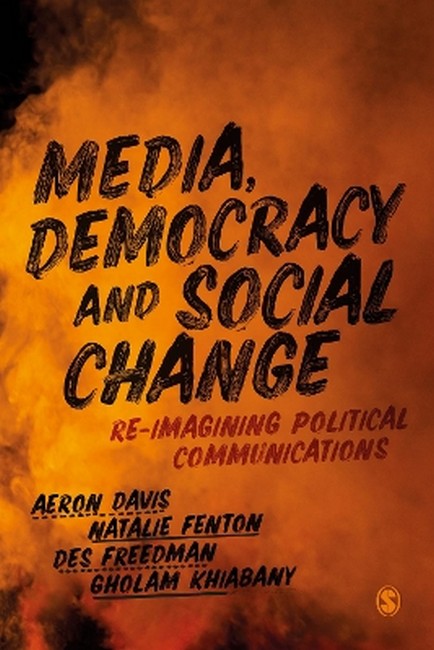Aeron Davis is Professor of Political Communication at Victoria University of Wellington. He was formerly Professor of Political Communication and Co-Head of the Department of Media, Communications and Cultural Studies at Goldsmiths, University of London where he was also the Co-founder and Co-Director of Goldsmiths' Political Economy Research Centre (PERC). He has researched and published across the disciplines of Media, Journalism Studies, Politics and Sociology. His research interests also include the promotional industries, elites, financialization and economic policy. He is the author of two edited collections and six books: Public Relations Democracy (MUP, 2002), The Mediation of Power (Routledge, 2007), Political Communication and Social Theory (Routledge, 2010), Promotional Cultures (Polity, 2013), Reckless Opportunists: Elites at the End of the Establishment (MUP, 2018) and Political Communication: A New Introduction for Crisis Times (Polity, 2019). He has also published some 50 other academic pieces as well as a number of reports and news opinion pieces. Natalie Fenton is a Professor of Media and Communications and Co-Head of the Department of Media, Communications and Cultural Studies at Goldsmiths, University of London. She is also Co-Director of the Centre for the Study of Global Media and Democracy. She has published widely on issues relating to civil society, radical politics, digital media, news and journalism and is particularly interested in issues of political transformation, radical media reform and re-imagining democracy. She was Vice-chair of the Board of Directors of the campaign group Hacked Off for 7 years and is currently Chair of the UK Media Reform Coalition. Her books include New Media: Old News: Journalism and Democracy in the Digital Age (Sage, 2010); Misunderstanding the Internet co-authored with James Curran and Des Freedman (Routledge, 2016); Digital, Political, Radical (2016, Polity); Media, Democracy and Social Change: Re-imagining Political Communications co-authored with Des Freedman, Gholam Khiabany and Aeron Davis (Sage, 2020) and The Media Manifesto co-authored with Lina Des Freedman and Justin Schlosberg and Lina Dencik (Polity, 2020). Des Freedman is Professor of Media and Communications in the Department of Media, Communications and Cultural Studies at Goldsmiths, University of London. He is co-director of the Goldsmiths Leverhulme Media Research Centre and a founding member of the Media Reform Coalition. His publications include, as editor, Capitalism's Conscience: 200 Years of the Guardian (Pluto, 2021) and, as author, The Contradictions of Media Power (Bloomsbury, 2014), The Politics of Media Policy (Polity 2008), Misunderstanding the Internet (Routledge, 2016, co-authored with James Curran and Natalie Fenton) and The Media Manifesto (Polity, 2020, co-authored with Natalie Fenton, Justin Schlosberg and Lina Dencik). He has co-edited books on a wide range of themes including media, racism and terrorism, the politics of higher education, media reform and the future of television. Gholam Khiabany teaches in the Department of Media, Communication and Cultural Studies at Goldsmiths, University of London. He is a member of council of management of the Institute of Race Relations, and Editorial Working Committee of Race and Class. His publications include Iranian Media: The Paradox of Modernity (Routledge, 2010); Blogistan co-authored with Annabelle Sreberny (I.B.Tauris, 2010); and two co-edited collections: Liberalism in Neoliberal Times: Dimensions, Contradictions, Limits (Goldsmiths Press, 2017), and After Charlie Hebdo: Terror, Racism and Free Speech (Zed, 2017).
Request Academic Copy
Please copy the ISBN for submitting review copy form
Description
Chapter 1. Putting Politics Back Into Political Communications Chapter 2. Infrastructures of Political Communications Chapter 3. The State of Political Communications Chapter 4. Elites, Experts, Power and Democracy Chapter 5. Democracy without Political Parties? Chapter 6. The Violence of an Illiberal Liberalism Chapter 7. Political Communications, Civil Society and the Commons Chapter 8. Intellectuals and the Re-imagining of Political Communications

